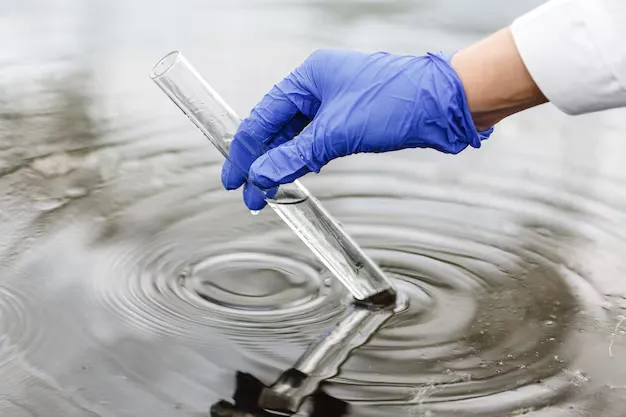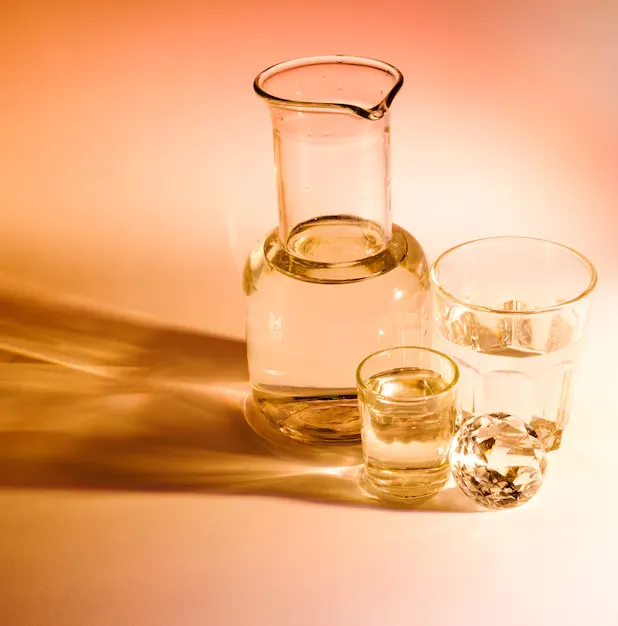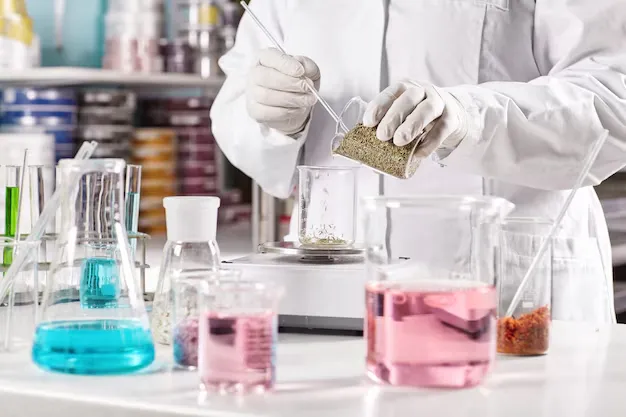How to Evaluate the Quality of Regenerated MMA Monomers

What is Regenerated MMA Monomer?
Regenerated Methyl Methacrylate (MMA) monomer is a sustainable alternative to traditional MMA, created by recycling MMA-rich waste materials. Unlike virgin MMA, which is synthesized from petrochemical sources, regenerated MMA undergoes a sophisticated depolymerization and purification process to yield a product of equal quality. This innovative recycling technique conserves resources, reduces environmental impact, and offers a cost-effective solution for industries reliant on MMA, such as automotive, construction, and adhesives manufacturing. As sustainability becomes a priority across industries, regenerated MMA monomer provides an eco-friendly solution without compromising on performance or quality.
How is Regenerated MMA Monomer Produced?
The production of regenerated MMA monomer involves a meticulous process designed to convert waste into high-quality monomers. It begins with the collection of MMA-rich waste materials from various industrial sources, including acrylic sheet manufacturers and automotive parts recyclers. These waste materials undergo depolymerization, breaking down polymer chains into monomers through controlled chemical reactions. The next step is purification, where impurities are removed, ensuring the regenerated monomer meets industry standards for quality and performance. This method not only minimizes environmental impact but also utilizes less energy compared to the traditional production of virgin MMA, offering an economical and sustainable solution for manufacturers.

Economic Impact: Cost Savings with Regenerated MMA
The purity of the monomer is a critical quality indicator. High-quality regenerated MMA should have minimal impurities and a chemical composition that closely matches that of virgin MMA. When evaluating a supplier, request technical specifications and analyze the purity level, typically expressed as a percentage.
Physical Properties and Performance
Check the physical properties of regenerated MMA, such as:
- Viscosity: Ensures that the MMA flows correctly during production.
- Clarity and Transparency: Important for applications requiring optical clarity.
- Strength and Durability: The regenerated MMA should provide the same structural integrity as virgin MMA.
Conducting tests to verify these properties helps confirm that the regenerated monomer will meet your production requirements.
Environmental Advantages of Regenerated MMA Monomer
Regenerated MMA suppliers should comply with recognized industry standards and certifications, such as:
- ISO 9001 for quality management.
- ISO 14001 for environmental management.
- Industry-specific standards like REACH compliance (for European markets) or RoHS compliance.
Certifications ensure that the supplier adheres to strict quality and environmental guidelines, reducing the risk of quality issues in the final product.
Benefits of Using Regenerated MMA Monomer
Choosing regenerated MMA monomer over virgin alternatives offers numerous benefits, both environmentally and economically. From an ecological perspective, it significantly reduces plastic waste and conserves natural resources, contributing to a circular economy. Economically, it helps manufacturers lower costs as the raw material is sourced from recyclable waste, reducing dependency on expensive petrochemical feedstocks. Additionally, the production process is energy-efficient, leading to decreased operational costs. For manufacturers, this translates to a more stable and predictable supply chain, safeguarding against price fluctuations in the raw materials market.
Purity and Chemical Composition
The purity of the monomer is a critical quality indicator. High-quality regenerated MMA should have minimal impurities and a chemical composition that closely matches that of virgin MMA. When evaluating a supplier, request technical specifications and analyze the purity level, typically expressed as a percentage.
Physical Properties and Performance
Check the physical properties of regenerated MMA, such as:
- Viscosity: Ensures that the MMA flows correctly during production.
- Clarity and Transparency: Important for applications requiring optical clarity.
- Strength and Durability: The regenerated MMA should provide the same structural integrity as virgin MMA.
Conducting tests to verify these properties helps confirm that the regenerated monomer will meet your production requirements.
Certification and Compliance Standards
Regenerated MMA suppliers should comply with recognized industry standards and certifications, such as:
- ISO 9001 for quality management.
- ISO 14001 for environmental management.
- Industry-specific standards like REACH compliance (for European markets) or RoHS compliance.
Certifications ensure that the supplier adheres to strict quality and environmental guidelines, reducing the risk of quality issues in the final product.

Purity and Chemical Composition
The purity of the monomer is a critical quality indicator. High-quality regenerated MMA should have minimal impurities and a chemical composition that closely matches that of virgin MMA. When evaluating a supplier, request technical specifications and analyze the purity level, typically expressed as a percentage.
Physical Properties and Performance
Check the physical properties of regenerated MMA, such as:
- Viscosity: Ensures that the MMA flows correctly during production.
- Clarity and Transparency: Important for applications requiring optical clarity.
- Strength and Durability: The regenerated MMA should provide the same structural integrity as virgin MMA.
Conducting tests to verify these properties helps confirm that the regenerated monomer will meet your production requirements.
Certification and Compliance Standards
Regenerated MMA suppliers should comply with recognized industry standards and certifications, such as:
- ISO 9001 for quality management.
- ISO 14001 for environmental management.
- Industry-specific standards like REACH compliance (for European markets) or RoHS compliance.
Certifications ensure that the supplier adheres to strict quality and environmental guidelines, reducing the risk of quality issues in the final product.
Supplier Testing and Quality Assurance Protocols
A reputable supplier should have well-established quality assurance protocols in place, including:
- In-house testing facilities: Ensure the supplier conducts rigorous in-house tests for purity, chemical composition, and physical properties.
- Third-party testing: Independent verification adds credibility to the supplier’s claims.
Understanding the supplier’s testing methods and standards helps you assess the reliability of their products.
Batch Consistency and Traceability
Batch consistency is crucial for maintaining the quality of your end products. Ask your supplier about their methods for ensuring batch-to-batch consistency and traceability. Reliable suppliers maintain detailed records of each production batch, allowing you to track the source and quality of the regenerated MMA.
Technical Support and Documentation
Choose suppliers who provide comprehensive technical support and documentation, including:
- Material Safety Data Sheets (MSDS): Essential for understanding the safety measures and handling requirements of the product.
- Technical Data Sheets (TDS): Detailed information about the chemical properties and recommended applications of the regenerated MMA.
These documents can help you make informed decisions and ensure safe and efficient use of the product.
Questions to Ask Your Regenerated MMA Supplier
When evaluating potential suppliers, ask the following questions to assess their commitment to quality:
- What quality control measures do you have in place for regenerated MMA production?
- How do you ensure the consistency of each batch?
- Can you provide technical documentation and test results for the product?
- Do you offer third-party testing or independent verification of product quality?
- What industry certifications and compliance standards does your product meet?
These questions will help you gain insights into the supplier’s quality management processes and their ability to meet your business’s needs.
Conclusion: Ensuring High-Quality Regenerated MMA for Your Business
Choosing the right regenerated MMA monomer supplier is essential to maintaining high standards and achieving sustainable production goals. By focusing on key quality indicators like purity, performance, and compliance, and implementing effective quality control measures, you can confidently source high-quality regenerated MMA for your business.
Partnering with a reliable R-MMA monomer supplier in India ensures access to consistent, high-performance regenerated monomers that meet your industry’s requirements. Take the time to evaluate your supplier’s quality protocols and technical support to make an informed decision.
Frequently Asked Questions
Here are the frequently asked questions (FAQs) that provide essential information about MMA Chemicals and our Methyl Methacrylate (MMA) Monomer products. These FAQs are designed to address common inquiries and help you understand why MMA Chemicals is the preferred choice for MMA Monomer.
Evaluate the quality by checking key indicators like purity, physical properties, and compliance standards. Verify the supplier’s testing methods, batch consistency, and technical support.
Batch consistency ensures that each batch of regenerated MMA meets the same quality standards, reducing the risk of defects in your final products and maintaining production efficiency.
Look for certifications like ISO 9001 (quality management), ISO 14001 (environmental management), and compliance with industry-specific standards such as REACH and RoHS.
